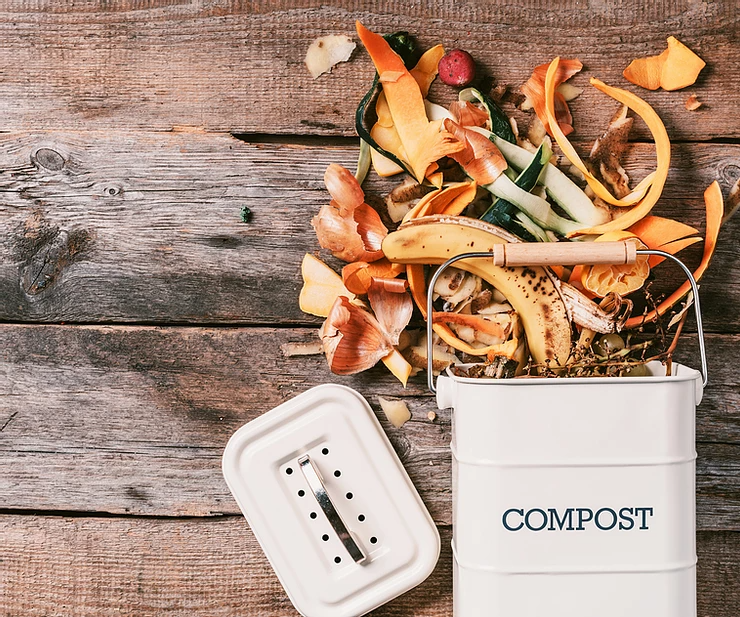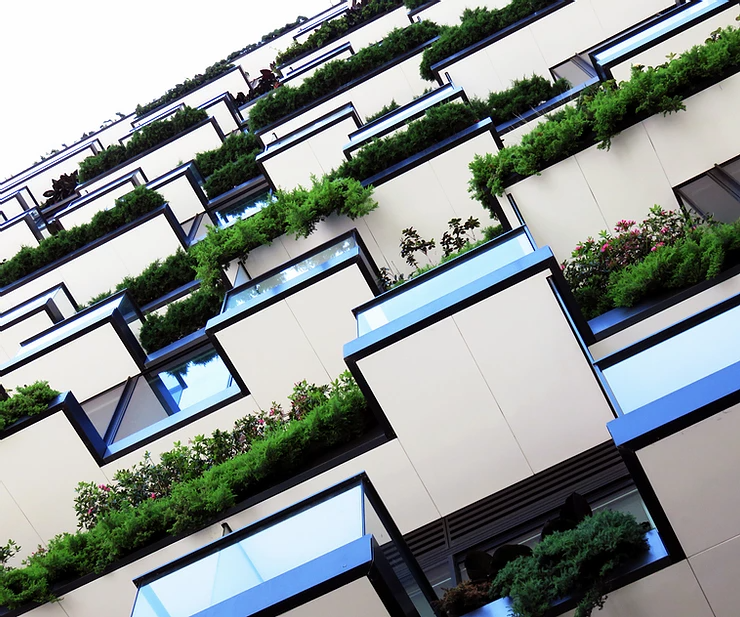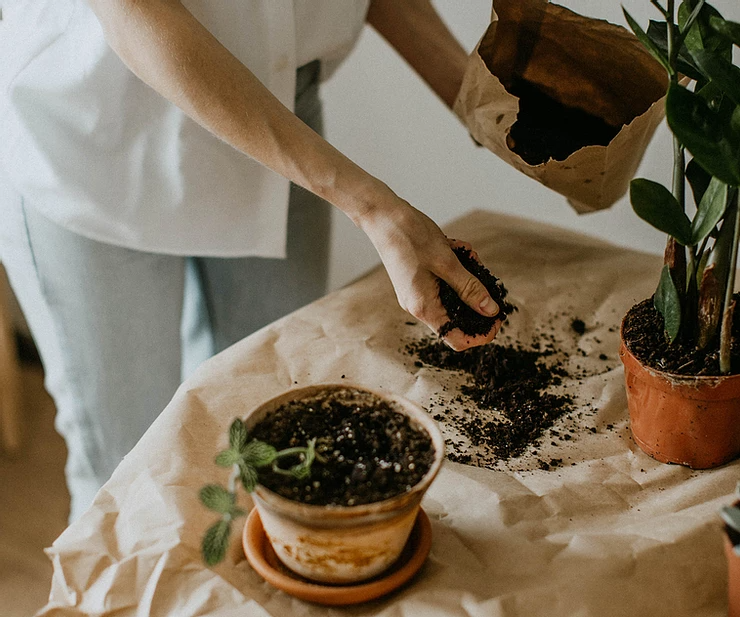

When it comes to using compost in outdoor garden beds, most people don't have to think twice. That's because they know that spreading compost in a garden is a wonderful way to get exceptional results.
However, did you know that compost can be just as magical for your indoor plants? It's true!
Nonetheless, even experienced gardeners might hesitate to add compost to an indoor planter. They figure that indoor plants have different light and water requirements, so maybe these plants won't benefit from compost.
The reality is that compost can ensure a struggling houseplant's survival or help a plant that's doing just okay to thrive.
Let's take a closer look at what compost is and the benefits that it can have for your indoor plants.

What Is Compost?
Compost is an all-organic amendment that can be added to soil to help plants grow and thrive. Although you can buy compost at garden centers and home improvement stores, you also can make your own compost.
Doing so is an environmentally-friendly choice. Homemade compost is made up of food scraps and yard debris, which would otherwise end up in the landfill.
What Goes into Compost?
In general, the ingredients of good compost can be separated into three categories:
1. Brown things like dead twigs, branches, and leaves
2. Green things like fruit scraps, coffee grounds, vegetable scraps, and grass clippings
3. Water
Other things that you might like to add to your compost pile include:
· Egg shells
· Fireplace ashes
· Lint from the dryer or vacuum cleaner
· Straw and hay
· Cardboard
· Shredded paper
· Tea bags
Why Do Indoor Plants Need Compost?
If you love your houseplants, then the chances are good that you used premium potting soil when you first brought them home.
That's great because this type of potting soil has plenty of nutrients to feed the plant. The problem is that those nutrients eventually become depleted as the plant grows and blossoms, which means that you have to find a way to replace those nutrients.
Composting is one easy and environmentally friendly way to accomplish this. The result is that your plants keep growing and thriving.

How to Add Compost to Indoor Plants
Composting is the ultimate solution for feeding your houseplants. Why? Because it mimics how they get nutrients in the wild.
Most houseplants come from tropical or sub-tropical climes. Organic plant matter naturally falls on them from above, giving them the nutrition they need to thrive.
When you add compost to your indoor plants, you're feeding them in the precise manner that they are used to in their natural habitats.
Accordingly, you'll want to add about an inch of compost to the top of your plant's pot once or twice per year.
There's no need to pull the plant out of the pot, unless it's ready for re-potting, or to try to mix the compost in with the soil. It's enough for the compost to be placed at the surface.
As you water and as the compost naturally continues to break down, it will feed the plant.
Add compost early in the spring, especially if you'll only add compost once per year. The second application may occur around mid-summer.

What Are the Benefits of Adding Compost to Indoor Plants?
Many people believe that adding compost to plants is something reserved for plants that are outdoors. This cannot be further from the truth!
If you start adding compost to your houseplants, they will love it!
For instance, you may notice that your plants are greener, stand up straight more readily and begin to grow faster.
Another benefit is that you may have to water less frequently. Compost helps the plant retain moisture, giving it more time to "sip" water as it needs hydration. This aids with healthy growth and makes dehydration less likely.
Indoor gardeners also love compost because it usually eliminates the need for chemical fertilizers. If you have used chemical fertilizers on houseplants in the past, you may know that these can be tricky to use correctly.
If you don't add enough, then your plants won't experience any benefits. However, if you add too much, you risk killing or at least burning the plant.
Getting the precisely correct amount of chemical fertilizer into each plant is never easy, and it may leave you feeling like you're playing a guessing game that you're fated to lose.
Quit the game and switch to healthy, all-natural compost. It definitely won't burn or kill your plants, even if you go a bit heavy with it.
That said, it is wise to stick to about one inch of compost for each application.
Don't forget that providing compost to indoor plants also is an environmentally friendly choice because it can remove tons of waste products from landfills.
If it's your goal to reduce, reuse and recycle, then composting definitely belongs on your to-do list.

Should You Make Your Own Compost?
If you start to read about starting a compost pile and begin to feel overwhelmed, you are not alone. Plenty of people start composting with great enthusiasm, only to realize that it is a lot of work after a few weeks.
While composting does take commitment, the results are definitely worthwhile. Your plants will thrive, your household will produce less waste and you'll be making an environmentally conscious decision.
Perhaps the thing to do is to start small. Purchase a composting bin and start adding coffee grounds, egg shells, twigs and leaves. Start experimenting in a small way, with the option in mind that you can always give your bin to a friend if you ultimately decide it's not for you.
The good news is that you can buy all-natural and organic compost at almost any home improvement store or gardening centre. These will offer just as much nutrition to your houseplants while requiring a lot less time and effort from you. The downside is that the costs can quickly add up depending on how many plants you own.
The even better news? You can make your very own homemade fertilizer with FoodCycler, even if you live in an apartment with little to no outdoor space!
Source: https://www.foodcycler.com/post/benefits-of-compost-for-indoor-plants




